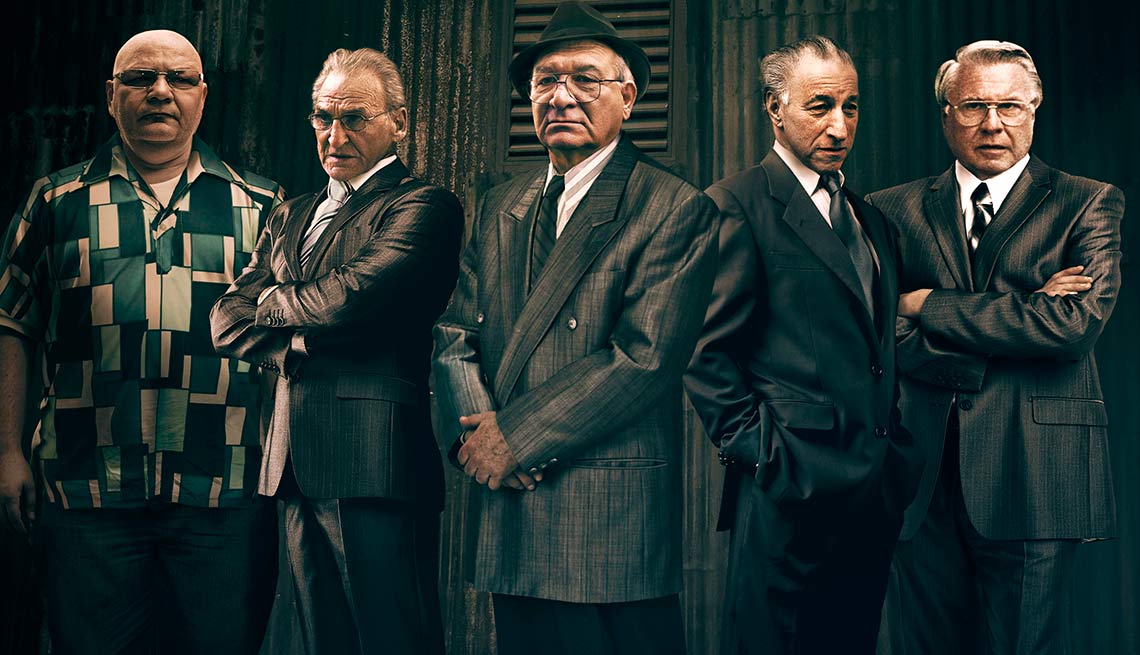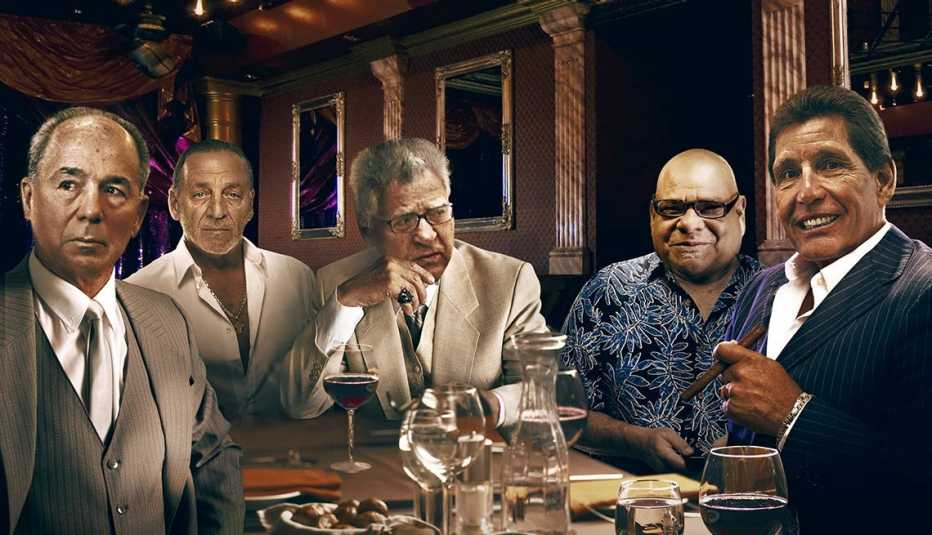AARP Hearing Center
THEY SHARED A LONG LUNCH of filet mignon, yellowfin tuna, and chicken with broccoli rabe, washing it down with four bottles of expensive Tuscan red. Ten wiseguys sat at an Italian restaurant in New Jersey, laughing and joking and talking. It could have been a scene from TV's The Sopranos. The men, from New York, Philadelphia and Newark, dressed the part — open-collared shirts, pinkie rings and Rolexes. Outside on that May afternoon in 2010, the FBI had set up surveillance cameras. Inside, at the table, a federal informant wore a body wire.
The conversation roamed, which would be expected during a five-hour meal among old friends. Sometimes so many guys were talking at once, it was hard to understand the point of the get-together.
But when nostalgia overtook the table, the words and meanings were clear.
"If we don't know them a lifetime or somebody good recommends them, there ain't nothing he can do," said Joseph "Scoops" Licata, discussing membership criteria for what was once perhaps the most exclusive men's club in America. "That's it. Don't bring no garbage around. Forget about it."
"Only way to survive," said John Gambino, then the 69-year-old boss of the venerable New York crime family that bears his surname. "You only need the quality, not quantity."
"That's the only way to keep it nice and straight," replied Licata, 68, a capo from Newark who served in the Philadelphia mob. "You know? You mix with garbage, it hits you in the face."
"Guys made it about money," piped up a voice. "It's not about money. It's about brotherhood."
"It's about friends," said another.
The FBI, on the other hand, said it was about business. It called the luncheon a meeting of "the board of directors" of two organized-crime families and used it as the basis for racketeering charges against several of the participants. But defense attorneys offered another explanation.
"It was just a bunch of geriatric gangsters waxing nostalgically about things that happened long ago," said Christopher Warren, Licata's lawyer.
The graying of the American Mafia has coincided with law-enforcement advances that have hobbled a once-mighty underworld colossus. The federal Racketeer Influenced and Corrupt Organizations Act (RICO) has been around for 45 years, less time than many of the mobsters it's used against. A bookmaker who might have faced two or three years in prison for gambling back in the old days now might face 10 to 20 if charged with the same crime, thanks to RICO.
The Witness Security Program offers a safe haven for gangsters who turn informant and take the witness stand. But picking up and starting over again isn't always an appealing idea for lifetime mafiosi, who tend to be set in their ways.
What's a wiseguy to do?
That question is being asked more frequently. Organized-crime careers are notoriously unpredictable, but gangsters are enjoying the same longevity benefits as the rest of us, and many don't go legit when they qualify for Medicare. They do what they have always done — commit crimes.
But when they get caught, they're using advanced age as a defense strategy. Or at least trying to. Call it the geriatric defense.
Recent sentencing hearings for New York mobsters have sounded like medical seminars, with defendants pleading for minimal jail time — or no time at all — because of poor health. The New York Times cited the trend several months ago: Goodfellas have become "oldfellas," the paper reported, describing courtroom scenes in which mobsters with fierce reputations "can be found displaying catheter bags or discussing the state of their kidneys in hopes that a judge will agree to a short sentence."






























































